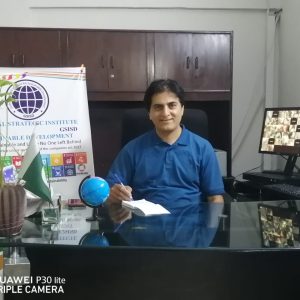About Us
We are a global think tank dedicated to accelerating the United Nations’ Sustainable Development Goals (SDGs) through interdisciplinary research, policy recommendations, and grassroots advocacy. Our mission is to bridge knowledge with action by collaborating with governments, academia, civil society, and the private sector.
Join Our Mission to
Improve The Future For All
Our Approach: Research | Policy Advocacy | Community Engagement
We integrate research, policy advocacy, and community engagement to drive meaningful change. Through evidence-based studies, we generate insights that inform sustainable policies and innovative solutions. Our advocacy efforts influence decision-making by fostering strategic dialogue, developing policy briefs, and collaborating with key stakeholders. At the grassroots level, we empower communities by promoting participatory governance and sustainable local development. By bridging the gap between knowledge, policy, and action, we strive to create a just, equitable, and sustainable future.

Priority Areas
The priority areas of sustainable development—climate resilience, public health, education, economic inclusion, urban development, governance, and technology—are essential for building a just and equitable society. Addressing these areas ensures environmental sustainability, improves human well-being, and excelerate inclusive economic growth. Research provides the foundation for data-driven decision-making, policy advocacy influences systemic change, and community engagement ensures that development efforts are people-centric. By focusing on these priorities, we can drive long-term impact, strengthen institutions, and create resilient societies that thrive in an ever-evolving global landscape.
Public Health, WASH and Social Protection
Public health, WASH (Water, Sanitation, and Hygiene), and social protection are interconnected in ensuring overall well-being. Proper WASH facilities prevent waterborne diseases, reducing the public health burden and improving community health outcomes. Social protection policies, such as financial aid and healthcare access, support vulnerable populations in maintaining hygiene and accessing essential health services.
Climate Change & Environmental Sustainability
Climate change and environmental sustainability are closely linked, as rising temperatures and extreme weather threaten ecosystems and resources. Sustainability focuses on preserving nature, reducing emissions, and building resilience to mitigate these impacts. Adopting renewable energy, conservation, and sustainable policies is key to a balanced future.
Education and Human Capital Development
Education and capital development are essential for sustainability, as skilled human resources drive economic growth and innovation. Quality education fosters critical thinking, sustainable practices, and technological advancements, leading to long-term development. Investing in education ensures a resilient workforce, resource efficiency, and sustainable progress.
Economic Inclusion and Social Justice
Economic inclusion, sustainability, and social justice are interconnected pillars of equitable development. Inclusive economies ensure fair access to resources and opportunities, reducing poverty and inequality. Sustainable practices support long-term prosperity while promoting social justice for marginalized communities.
Urban Development and Smart Governance
Urban development, smart governance, and sustainability are key to building resilient and livable cities. Smart governance leverages technology, data-driven policies, and community participation for efficient resource management. Sustainable urban planning ensures eco-friendly infrastructure, reduced emissions, and improved quality of life.
Peace, Justice, and Institutional Reforms
Peace, justice, and institutional reforms are vital for sustainability, ensuring stability, fairness, and inclusive development. Strong institutions promote transparent governance, rule of law, and equitable resource distribution, reducing conflicts and inequality. Sustainable progress thrives in just societies with accountable systems and participatory decision-making.
Science, Technology and Innovation for Sustainability
Science, technology, and innovation drive sustainability by creating efficient solutions for energy, resource management, and climate resilience. Advancements in green technologies, AI, and sustainable infrastructure reduce environmental impact and enhance economic growth. Investing in innovation fosters long-term sustainability and global development.
Who we Are
The Global Strategic Institute for Sustainable Development (GSISD) is a leading think tank dedicated to advocacy, research, and public policy to accelerate the United Nations’ Sustainable Development Goals (SDGs) in Pakistan through local and global collaboration. Our work focuses on evidence-based policy solutions, stakeholder engagement, and innovative strategies to address critical challenges in climate action, public health, education, governance, and economic sustainability.
Our team comprises experts, policymakers, researchers, and professionals specializing in advocacy, communication, and sustainability, working collaboratively to drive impactful change.



